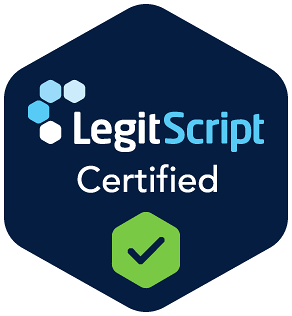
Does Gabapentin Show Up on a Drug Test? What You Need to Know
At Spark Wellness in Yardley, PA, we often hear questions from clients who are curious about medications and how they might affect standard drug testing. One common inquiry is whether gabapentin shows up on a drug test. Gabapentin, a medication prescribed to treat nerve pain, seizures, and other conditions, has grown in use and importance in recent years. Understanding how it interacts with drug testing is crucial for those prescribed this medication and those undergoing drug screening for various reasons.
What is Gabapentin?
Gabapentin is an anticonvulsant medication that is commonly used to manage nerve pain and control seizures. It is often prescribed under brand names like Neurontin. Although gabapentin is not classified as a controlled substance in many areas, it has gained attention due to increasing reports of misuse. This has led to questions about how it is detected in drug testing and whether it might impact employment or medical assessments.
Does Gabapentin Show Up on Standard Drug Tests?
The simple answer is no—gabapentin does not typically show up on standard drug tests. Most routine drug screenings, such as those used by employers or for probation, test for commonly abused substances like opioids, amphetamines, cocaine, benzodiazepines, and marijuana. Gabapentin is not included in these standard panels because it is not considered a controlled substance in most states.
However, this does not mean that gabapentin is never tested for. In some cases, specialized drug tests can be designed to detect gabapentin use. These tests are usually conducted in specific clinical settings, such as pain management clinics or addiction treatment facilities, where there is a reason to monitor the medication’s usage more closely.
Why Might Gabapentin Be Tested For?
While gabapentin is generally safe when used as prescribed, there has been an increase in its misuse, particularly when combined with other substances like opioids. This misuse has raised concerns in the medical community and led to the development of more targeted testing protocols in certain scenarios.
- Clinical Drug Monitoring: In pain management and addiction treatment settings, gabapentin might be included in a broader drug screening to ensure proper usage and monitor potential abuse.
- Legal or Compliance Reasons: Certain court-ordered drug tests or compliance checks may include gabapentin as part of a comprehensive evaluation, particularly if gabapentin abuse is suspected.
What to Know If You’re Taking Gabapentin
If you have been prescribed gabapentin and are concerned about drug testing, it’s important to inform your healthcare provider or the party administering the test about your prescription. Transparency can help avoid any confusion if a more specialized test is administered.
How to Prepare for a Drug Test
- Inform Your Employer or Testing Facility: If you're undergoing a drug test for work or other purposes, inform the testing facility or employer about any medications you are taking, including gabapentin.
- Bring Documentation: Having a copy of your prescription or a note from your doctor can help explain your use of the medication if needed.
- Consult Your Healthcare Provider: If you’re concerned about drug testing and how gabapentin might affect the results, your healthcare provider can provide guidance and documentation.
While gabapentin does not show up on most standard drug tests, it’s essential to be aware of the situations where it might be tested for, especially in specialized or clinical settings. At Spark Wellness in Yardley, PA, we believe that understanding your medications and their implications is a vital part of managing your mental health and well-being. If you have questions about medications, drug testing, or treatment plans, reach out to us for professional support and guidance. Our team is here to provide clarity and help you make informed decisions about your health.
Recovery articles for you
.jpg)
The Intersection of Technology and Mental Health: Navigating Digital Well-being
.jpg)
Setting Boundaries: Protecting Your Sobriety in Social Situations
.jpg)



